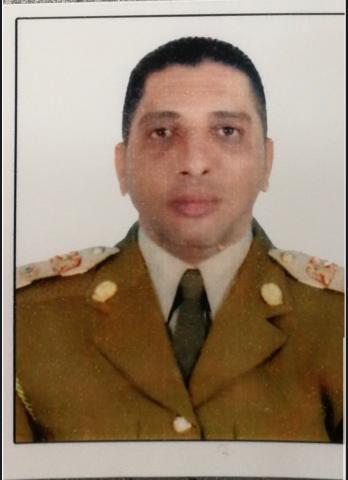
The UN Working Group on Arbitrary Detention has called on the authorities responsible for the arrest and detention of Colonel Osama Muhammad Saleh Al Ghafir Al Obeid to release him immediately.
Captured on 21 March 2022 by militiamen of the "Tariq bin Ziyad Brigade" controlled by the son of "General" Khalifa Hafter during an operation to control the oil fields in the Sirte region, his case had been submitted by Alkarama to the UN Working Group.
Arbitrary arrest and detention
A senior officer in the Ministry of Defense of the Government of National Accord in Tripoli, Colonel Al-Obeid was part of a battalion tasked with securing the oil fields in the Sirte area.
On 12 July 2016, while on a mission there, Colonel Al-Obeid was arrested by General Hafter's forces and taken on a military aircraft to Benghazi.
After a month of unsuccessful attempts by Colonel Al-Obeid's family to obtain information about his fate, he appeared on a television programme on the "Al-Hadath" TV channel, controlled by General Haftar; He spoke under duress and showed obvious signs of extreme fatigue and torture. Since then, his family has not heard from him.
It was only on 15 February 2022 that one of his released fellow inmate informed his relatives that he had recently been detained with him in the Si Faraj area near Benghazi, in the detention facilities of the "Tariq bin Ziyad Brigade", controlled by General Khalifa Haftar's son, Saddam Khalifa Haftar.
His family then appealed again to the Benghazi public prosecutor, who informed them that the colonel had never been brought before him and that he was not in an official prison.
Libyan government responsible for militias' action
In their Opinion, the independent experts of the UN Working Group noted first and foremost the full responsibility of the Libyan Government for the detention of Colonel Al-Obeid by the "Tariq bin Ziyad" brigade.
The Working Group considered that "Although the Libyan National Army and its affiliated militias, including the Tariq bin Ziyad brigade, maintain their own command structure and operate autonomously from the Government of National Accord, the only Government recognized by the Security Council (...) the payment of salaries and equipment to personnel of the Libyan National Army is ensured by the Government of National Accord. ».
Colonel's detention described as arbitrary
The UN experts noted the lack of a legal basis for the detention of Colonel Al-Obeid, who is being held without judicial process. The Working Group, which stated that the colonel had been a victim of enforced disappearance, added that he was prevented from challenging the lawfulness of his detention, as judicial supervision was "a central safeguard for personal liberty and is critical to ensuring that the detention has a legitimate basis."
In addition, the denial of acknowledgment of the Colonel's detention, and his subsequent denial of legal assistance, constitute violations that "substantially undermined and compromised Colonel Al-Obeid's capacity to defend himself in any judicial proceedings."
The Working Group, which also pointed out that the Colonel has been detained for more than seven years without ever having been brought before an authorized judicial authority, recalled that the right to be tried within a reasonable time and without undue delay is one of the guarantees of a fair trial.
As raised by Alkarama in its communication, the experts considered that the deprivation of liberty of Colonel Al-Obeid is discriminatory, as he was targeted by militias affiliated to the Libyan National Army because of his political views as an officer under the command of the former Minister of Defense of the Government of National Accord.
For all these reasons, the UN independent experts acknowledged the responsibility of the Libyan government and called on it to release Colonel Al-Obeid.
The government has six months to implement the Task Force's recommendations. Alkarama, for its part, will keep it informed of any developments relating to this case, which it will follow up until the victim's actual release.
